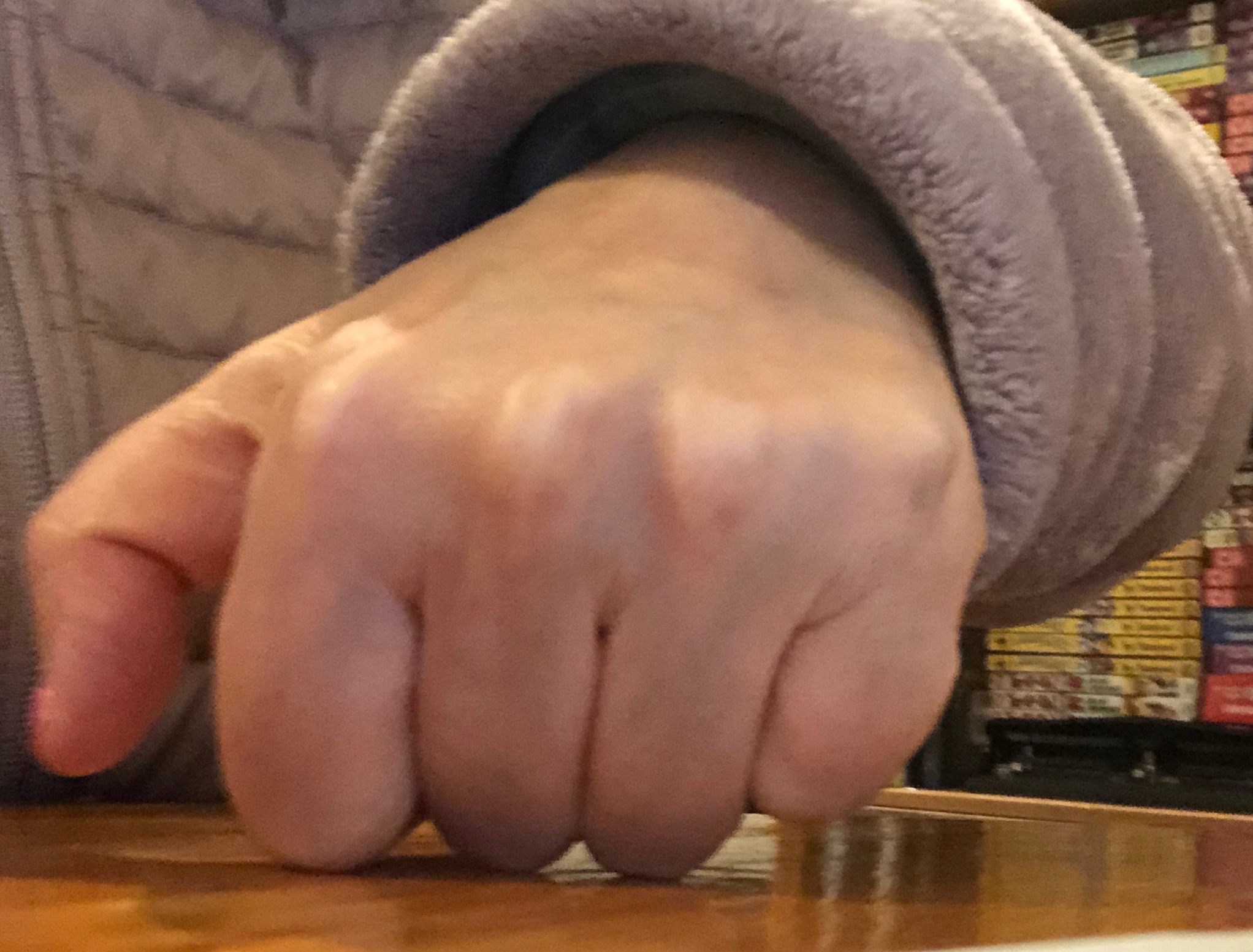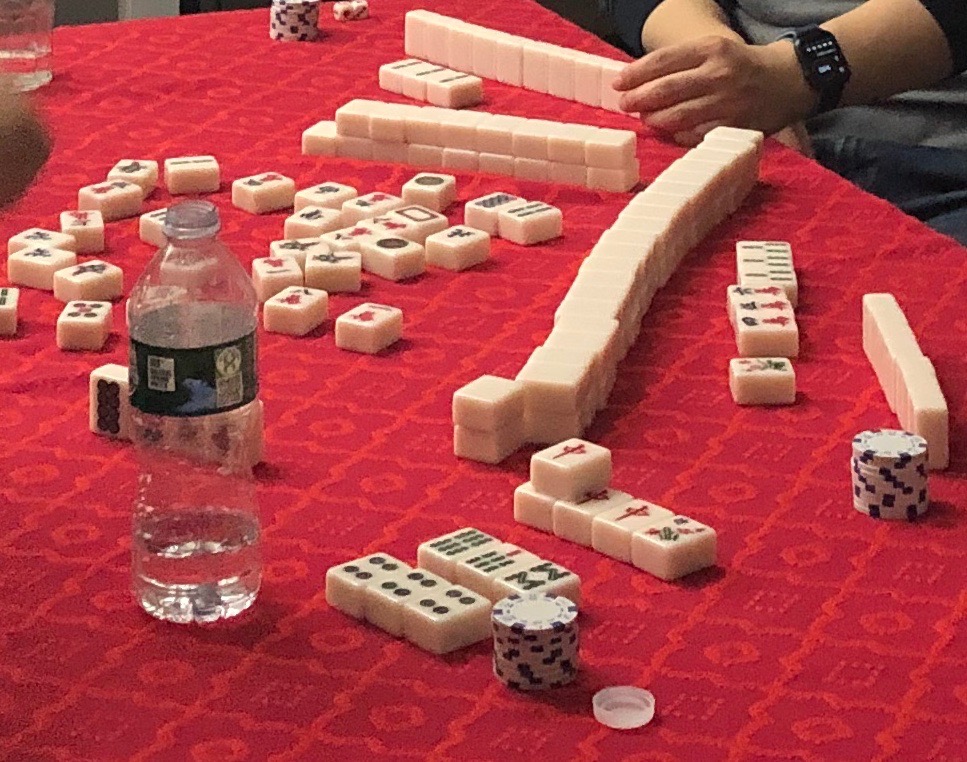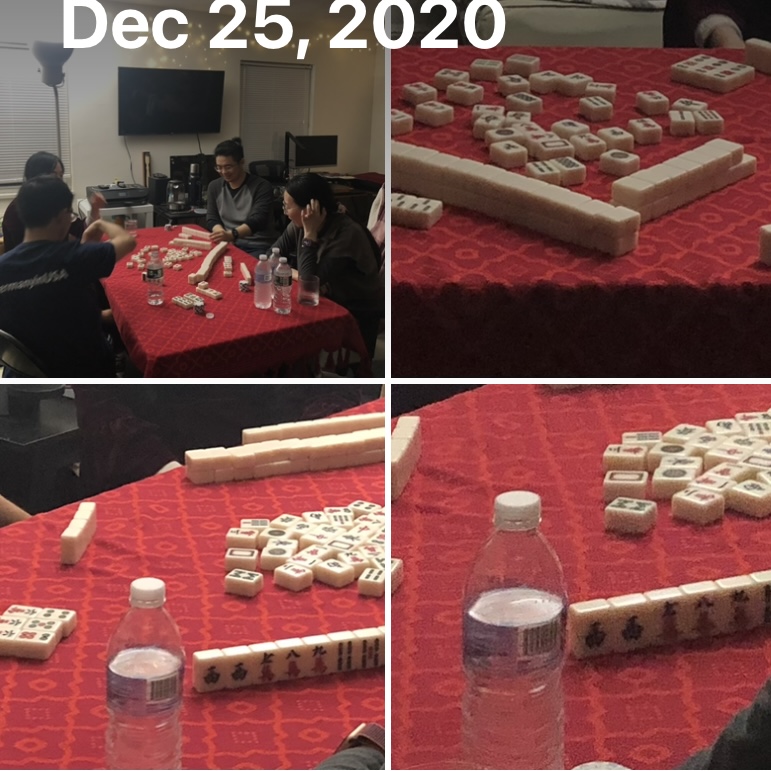Chinese Version
12-27-2020
I observed a group of young people playing mahjong recently.
The players were happily moving between “Peng(碰)”、“Chi(吃)”、“Gang(杠)”、“Mo(摸)”, while joking about “self made win(自摸胡)”as well as “don’t blowout(别放炮)”, and occasionally knocking on the table, so the atmosphere was filled with excitement and joy.
Player A said: “The American way of knocking on a table is a good expression.”
“Knocking on a table to distract evil intentions without a word.” player B extended the meaning of knocking on a table.
Player C said: “Germans knock on a table in order to applaud with one hand. That is German efficiency, using one hand to complete a task that normally requires two hands. It is an economic efficiency knock.”
I could not resist to pitch in: “Can you explain the meaning of the knocking action in Chinese?”
I heard player D garbling out some language I could not understand, and I asked: “Are you speaking Chinese or English?”
One of the players said: “He spoke in Chinese, in a way only belongs to our generation, because it is a mix of Chinese and English.”
I joked: “More gaps between those born in the 1960′s and those born in the 1990′s need to be filled.”
The mixed Chinese and English phrase is: “不要乱立flag”, which is similar: “before the exam, the child told his parents that he would get full scores, but most of his exam scores would just pass.”
Little Episodes
The gesture of knocking on the table:



